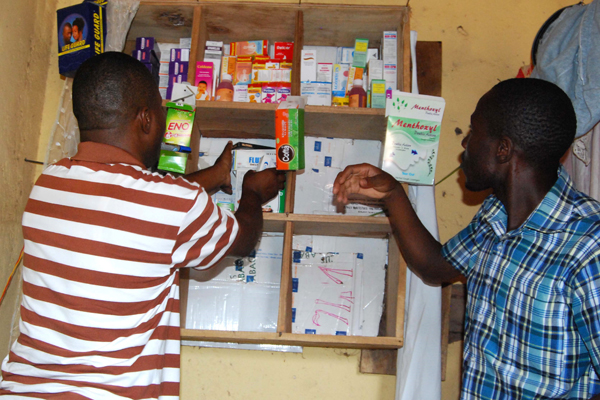Prime
Fake drugs flood market

National Drug Authority enforcement officers impound some of the drugs at a drug shop in Logiri Sub-county Arua District last year. PHOTO/FELIX WAROM OKELLO
What you need to know:
- Dr Joseph Mwoga, the World Health Organisation pharmaceutical adviser for Uganda, asked government to increase sensitisation about the dangers and how to avoid falsified or substandard medicines. The authority is allocated $80,000 (Shs283m) annually, and in the next financial year, it will increase the budget towards fighting falsified medicines to $120,000 (Shs425m).
The National Drug Authority (NDA) has warned that it will start withdrawing trading licence of dealers and suspend production by local manufacturers implicated in falsified or substandard medicine deals.
The authority said it has already suspended imports from three Chinese companies over the vice.
Substandard and falsified medicines cause financial loss and death to unsuspecting patients because of treatment failure.
Addressing pharmaceutical sector actors in Kampala yesterday, Mr Nasser Lubowa, the head of post-market surveillance at NDA, said local technical representatives (LTRs) or distributors of manufacturing companies are frustrating their fight against poor quality products.
“We are having an ineffective implementation of recalls by LTR of manufacturers. We tell people [companies] to recall [poor quality] drugs up to pharmacy level, but they just go to few distributors and ask whether they have the products,” Mr Lubowa said.
He added: “And if the distributors who purchased from them say they don’t have the products, the [implicated] company tells us [NDA] that they have finished the recall. But when we move upcountry, we find the products in the market.”
Upon a recall, the LTR is required to gather the drugs from all pharmacists or other chains of distributors they have sold the products to at their own cost, according to information from NDA. The NDA surveillance boss said often when they initiate a recall, most dealers collect the drugs from pharmacies in the city and move them upcountry [where enforcement is a bit poor].
The executive director of the Uganda National Health Consumers Organisation, Ms Robinah Kaitiritimba, earlier said the NDA surveillance and enforcement is inadequate to effectively tackle the problem.
“If you go to the market, you will find many counterfeit medical products. It is worse with anti-malarials and yet we already have the issue of drug resistance,” she said.
But Mr Lubowa said their assessment showed that due to increased enforcement, incidents of poor quality products has declined by 3 per cent over years, from 15 per cent to 12 per cent.
He said the recent market assessment has discovered more pharmaceutical and herbal medicines which are falsified or substandard.
Dr Joseph Mwoga, the World Health Organisation pharmaceutical adviser for Uganda, asked government to increase sensitisation about the dangers and how to avoid falsified or substandard medicines. The authority is allocated $80,000 (Shs283m) annually, and in the next financial year, it will increase the budget towards fighting falsified medicines to $120,000 (Shs425m).
Substandard drugs
Some of the substandard drugs include Postinor-2 (an oral emergency contraceptive pill used to prevent pregnancy after having unprotected sex), Quinine (used to treat malaria), and Cialis (used to treat impotence or erectile dysfunction), among others. “The falsified type of Postinor-2 had starch [maize flour] instead of the activeingredient that prevents pregnancy after unprotected sex. The drug was detected in Kampala,” he said.
One of the fake herbal medicine recalled was Embaluka hard core drink, which is used to treat erectile dysfunction or increases male performance during sex, had ingredients got from a pharmaceutical drug Cialis. The NDA said the exact quantity that was added in the herbal concoction was not known, adding that it was not indicated on the container. This is illegal and poses health risks to users.




